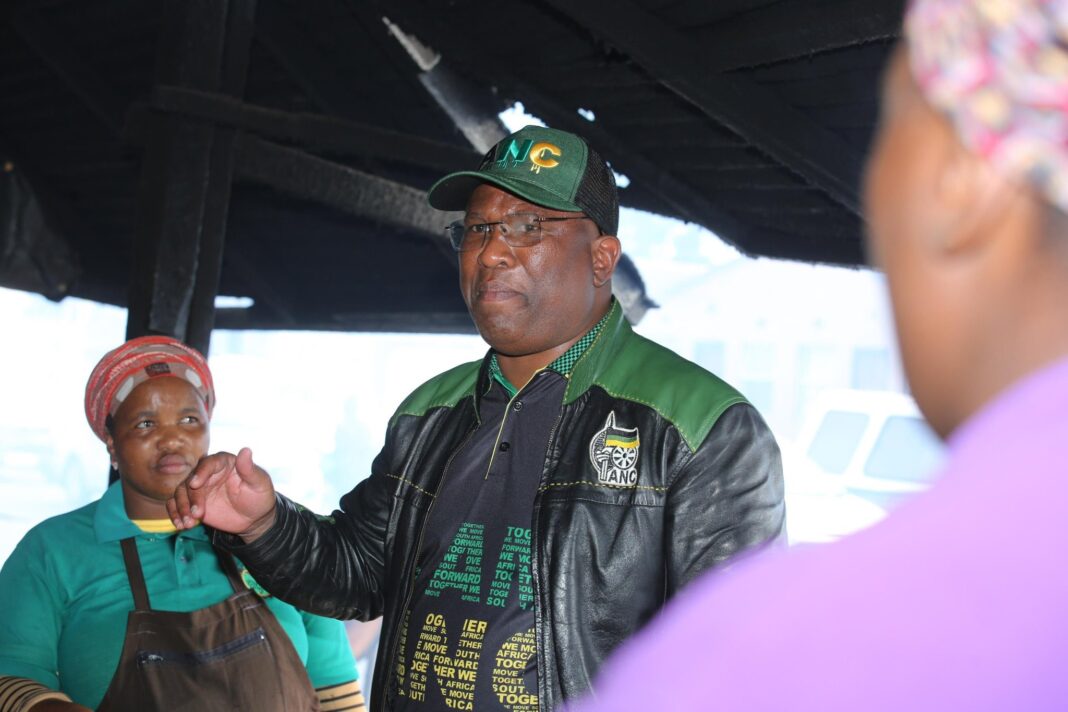By Max Matavire
THE rural nature of the Eastern Cape province, with its hallmark rugged, rolling, and interlocking hills, and wild terrain has made a large chunk of the region almost impossible to access and hampered efforts to develop it successfully.
It has a rich traditional culture steeped in old beliefs nurtured over the years and the province is known as the political nursery of South Africa’s big political names such as – Mbeki, Mhlaba, Biko, Hani and Sisulu to name a few.
All these greats come from the Eastern Cape, and this has resulted in the province being
named “Home of the Legends”. Yet despite these seemingly positive attributes, the province has remained the second poorest in the country after Limpopo, and the least developed.
With a population of just over seven million, the Eastern Cape is a strong political base for
the African National Congress (ANC) – because of its history as the birthplace of many of the party’s stalwarts.
But with an unemployment rate of 42,2 percent, that rises to 49 percent when you include
those who have given up looking for jobs, the province lags way behind others in
development.

Other political parties in the province competing with the ANC are the Democratic Alliance
(DA), Economic Freedom Fighters (EFF) and to a lesser extend the United Democratic Movement (UDM) and newly formed Mkhonto weSizwe (MKP).
Although it remains the dominating party since 1994, the ANC’s popularity has been
decreasing, especially in the urban centres to the extent that it is now being referred to as a rural party as most of its support comes from there. Despite this decline in popularity, the ANC has maintained its electoral dominance.
For instance, in the 2004 provincial elections, it recorded a high of 79,27 percent. This then went down to 68,74 percent in 2019. During the same time, the DA recorded an increase in support from 7,34 percent in 2004 to 15,73 percent in 2019.
Contesting national elections for the first time in 2014, the EFF secured 3,48 percent of the
votes in the Eastern Cape and this jumped to 7,84 percent in 2019. This shows the growth in electoral support for the DA and EFF but a decline for the ANC although it still went on to win the province.
An Ipsos Pulse of the People survey held in March this year, shows the continuous decline in ANC support in the Eastern Cape. However, the poll still gives the party a 55,3 percent lead over its closest rival. This survey also polled the DA at 16,2 percent and the EFF at 12,1%.
Some political analysts say this continued electoral dominance by the ANC in the province, is due to its historic loyalty – the reasoning behind this that the party fought against apartheid and liberated the country from a terrible regime which did not see non-whites as human beings.
Nelson Mandela University (MMU) lecturer and political analyst Dr Ongama Mtimka agrees
that ANC support in the province is decreasing. “The ANC’s popularity is on the decline. In
the western side of the Eastern Cape where the population is diverse – blacks, coloureds and whites – the ANC is not doing well.
“This is the area consisting of Kouga, Jeffreys Bay, Jansenville and other small farming
towns. Also, in urban centres now, the support is dwindling at a larger rate – this is the middle class. This has resulted in the ANC being a rural party, said Dr Mtimka.
He said with the UDM putting its leader Bantu Holomisa as a premier candidate for the
Eastern Cape, the ANC might benefit in the event none of the parties received an outright
majority.
“They (ANC and UDM) might strike a coalition agreement where the ANC will be the
coalition leader, but Holomisa may become the provincial premier,” said Dr Mtimka.
Referring to the MKP, Dr Mtimka said the party is not visible in the Eastern Cape.
“They will not get significant numbers. Yes, they will try and recruit those ANC members
who still believe in the radical economic transformation (RET), but this will be mostly in
those parts of the Eastern Cape close to the border with KZN,” he said.
Professor Ntshikelelo Breakfast also from NMU, said political power comes from both ruraland urban centres.” As far as I am concerned, the ANC is not under threat. It has a good relationship with traditional leaders, and through them, it commands massive rural support.
The party has good rural followership in Limpopo, the Eastern Cape and Mpumalanga, said Prof Breakfast.
He said the DA is expected to do well in urban centres like Gqeberha, East London and other towns.
He said that it is not likely the EFF would outperform the ANC in the Eastern Cape, neither is the MKP which is pre-occupied with internal squabbles. He likened the ANC in the Eastern Cape to Zimbabwe where people, mostly rural, continue voting for Zanu (PF) despite the suffering they are subjected to by the same party.
“People of the Eastern Cape are like Zimbabweans. They don’t get services, or if they do, it is of a poor level. When it comes to voting, they vote ANC – it is because of the collectjve memory, nostalgia,” said Prof Breakfast.
He agrees with Prof Breakfast that there would most likely be a possible coalition between the ANC and UDM in the province.
” In the event of a coalition, I foresee the ANC teaming up with the UDM. Where have you seen a national party leader putting up their name for a premier candidate. Holomisa has done that in the Eastern Cape – this is strange. I smell something here – it could be a coalition,” he said.
The ANC recently announced Oscar Mabuyane as their current provincial premier. who has a cloud hanging over his head following the controversy surrounding his obtaining of a degree from Fort Hare University.
The UDM, on the other hand, has named its national leader Bantu Holomisa as premier candidate. The move is described by political analysts as “unheard of and suspicious”.
The other political parties have said they will only announce their premier candidates after the election.
Meanwhile Eastern Cape DA provincial leader Andrew Whitfield, said voters are now more concerned with the delivery of services and honouring promises made during election campaign time.
Whitfield said his party has remained the second most popular party in the province and had shown growth in rural areas evidenced by winning wards in former ANC strongholds.
Boasting an annual budget of R92, 8 billion from national treasury, with a big chunk of it
going to education, the ANC has not fared well in providing services to the people. In fact,
children still learn in schools made from mud, with nothing more than dangerous pit latrinesn for toilets.
In fact, most of the schools in the province fail to meet the minimum standards prescribed in the South Africa Schools Act. According to a question-and-answer session in the Bisho legislature, there are over 5 200 schools in the Eastern Cape. Of these, 3000 are without
adequate sanitation and over 1000 are still using pit latrines.
This, despite the provincial government promising to eradicate these structures by the end of the 2022/23 financial year.
Even more frustrating is that by the end of that financial year, about R205 million meant for the construction and maintenance of schools was returned to national treasury.
It went underspent. Added to this, is a critical shortage of teachers with many trained candidates unemployed.
The schools’ nutrition and transport programmes have also been suspended on numerous occasions either due to sheer incompetence or mismanagement of the allocated funds affecting thousands of learners from poor rural families.
Crime is rampant in the province with areas like Gqeberha recording five murders a week – these are those reported as some go undocumented. Unemployment contributes to the increase in crime. Service delivery protests demanding clean drinking water, electricity, better roads, housing are an almost daily occurrence.
The state of infrastructure in the province is appalling. Images and videos of rural folk crossing flooded rivers with coffins on their heads going to bury relatives on the other side; learners, some in primary school, crossing crocodile – infested waters to attend schools in rickety grass thatched establishments made from mud – have been splashed on social media.
The absence of a better road infrastructure has now prompted the provincial government to embark on a multi-billion road construction programme with the assistance of the national road’s agency – Sanral.
Poverty and hunger have resulted in some parents killing their children because they cannot feed them. Early this year, a Transkei mother bludgeoned her four children to death with a hammer because she said she could no longer feed them.
With a 7,8 percent contribution to the GDP, the province is home to the country’s biggest auto manufacturers -Chrysler Daimler (Mercedes Benz), Volkswagen Group SA, Ford, Toyota and recently Stellantis all which contribute 51 percent of South Africa’s vehicle exports. The province’s main economic drivers and employment creators are the manufacturing and agricultural (both crop and livestock) sectors.
The province is well known for its best mutton – the Karoo lamb – popular all over the world.
It is a major producer of wool and the only province with two special economic zones –
Coega and the East London special economic zone. Here some investment have been pouring in.
The latest being the R1billion cannabis processing plant at Coega, which in five years is projected to create 30 000 jobs. The province is also a tourism drawcard with one of the country’s largest national parks – Addo National Elephant Park.
With a provincial government in place that respects good governance, promotes skills development and a zero tolerance to corruption, the Eastern Cape has a great potential.
INSIDE POLITICS

